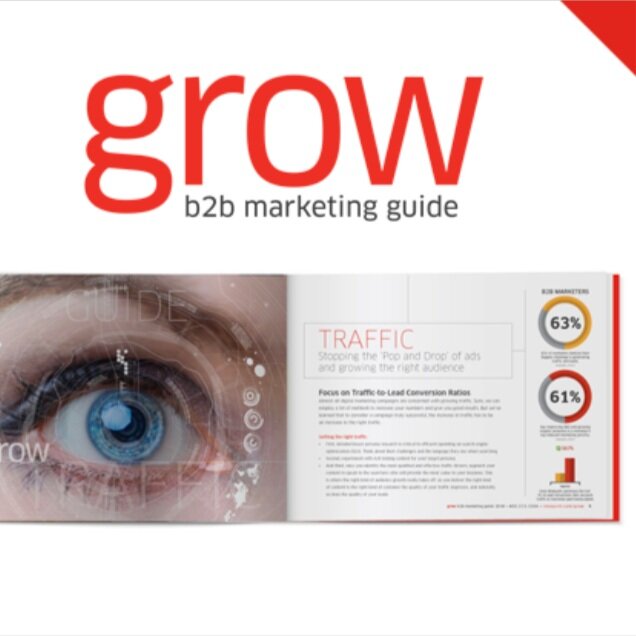In marketing, silos have become a growing issue that negatively affects efficiency, revenue, and lead generation. As business operations expand, organization charts and workflows can get derailed, isolating projects, departments, vendors, etc. Ensuring mature marketing development and support is a must as your business matures. This is where an integrated marketing approach is necessary to bridge silos and enable effective collaboration throughout your organization.
What Is Integrated Marketing?
Integrated marketing is a comprehensive, holistic, and strategic approach to marketing that requires collaboration between different teams, including sales, marketing, product development, and customer service. This collaboration works both ways to ensure that marketing collateral is supported by genuine customer experiences and internal expert input. In turn, marketing will provide real-time insights and resources for sales and customer success teams to leverage.
When implemented correctly, integrated marketing can provide a unified message and a consistent brand experience across all channels, leading to more efficient and effective campaigns and overall operations.
The Problem with Silos in Marketing & Sales
To further understand the issues that silos can create in marketing and sales, let's explore some of the main problems that can emerge:
- Lack of Communication: When different departments and teams work in silos, communication can be limited or even nonexistent. This can lead to missed opportunities, duplication of effort, and misaligned goals.
- Duplication of Effort: Working in isolation can result in different teams working on the same projects, initiatives, or campaigns. This can create a redundancy of effort and investment that cuts away at ROI. Duplicate efforts will also interfere with the analytics process for evaluating the success of these projects.
- Reduced Trust: When departments and teams do not work together or have conflicting goals, it can create an "us vs. them" mentality. This erodes the trust and respect between departments and can generate workplace tension, conflict, and toxicity.
- Inconsistent Customer Experience: When different departments and teams work in silos, it can result in an inconsistent customer experience across different touchpoints, such as social media, email, website, events, and sales collateral. Mixed messages will impact your customer's confidence, buying experience, and overall loyalty toward your brand.
- Data Bias and Misinterpretation: Silos can result in data being filtered through one department's lens, leading to data bias and misinterpretation. This will impact the insights you need to make intelligent and highly performative business decisions.
To prevent these issues from occurring, it's important to break down silos and encourage collaboration between departments. An integrated marketing approach can help achieve this goal by creating a shared vision and strategy, establishing regular communication channels, and providing all teams access to the same data and insights. By doing so, companies can improve efficiency, revenue, and lead generation, creating a mature marketing system that supports holistic business success.
How Integrated Marketing Dismantles Silos
Integrated marketing helps to dismantle silos by breaking down communication barriers and enabling sales and marketing alignment. This is achieved by creating workflows and systems that integrate the goals and functions of connected departments. This is done most easily by establishing regular communication between team leaders and individual team members, as needed, and creating shared spaces for regular collaboration, most notably - The Cloud. Cloud integration allows for sharing real-time data, insights, and customer intelligence, enabling all teams to access the same information and insights. As a result, the teams can collaborate more effectively, resulting in shorter gaps between ideas and solutions.
Furthermore, an integrated approach to marketing enables the creation of a consistent brand experience across all touchpoints, including social content, email newsletters, site copy, commercials, and ads. This approach can help increase brand recognition, loyalty, and customer satisfaction.
Does Your Company Have Mature Marketing Integration?
If you're wondering whether your company has mature marketing integration, there are a few key things to look for. One way to evaluate the level of integration is to assess the collaboration between the different departments involved in marketing. Are they working together seamlessly towards common goals or operating with individualized objectives? Mature marketing integration means that the departments inside marketing, such as social media, email marketing, and content marketing, are working in sync and sharing data and insights with the entire organization.
Another factor to consider is the level of integration between marketing and other departments, such as sales, customer success, development, and product. Are there any dead-ends in communication or productivity between departments? A mature marketing integration strategy ensures that all departments work together to create a consistent and positive customer experience across all touchpoints.
To self-audit your marketing integration, conduct a SWOT analysis to identify your marketing strategy's strengths, weaknesses, opportunities, and threats. Evaluate your marketing metrics, such as lead generation and conversion rates, to determine if your marketing efforts contribute to the company's bottom line.
Ultimately, companies that have mature marketing integration enjoy increased efficiency, revenue, and customer satisfaction. By assessing the collaboration between departments and the level of integration, you can determine if your marketing integration is effectively optimized and take steps to improve it.
Silos are a growing problem in the B2B marketing sector, and the negative effects can be significant. However, integrated marketing strategies provide a modern, scalable, and measurable solution to dismantle silos and encourage department collaboration. By implementing an integrated approach to marketing, companies can improve efficiency, drive revenue and lead generation, and create a consistent brand experience to establish a strong pipeline of informed and excited leads. It's time for B2B CMOs to embrace integrated marketing and reap the rewards that come with breaking down silos. If you want support bridging the gaps in your marketing efforts, Relequint can help you implement a mature marketing experience supporting your current business structure and goals.







 By
By 
